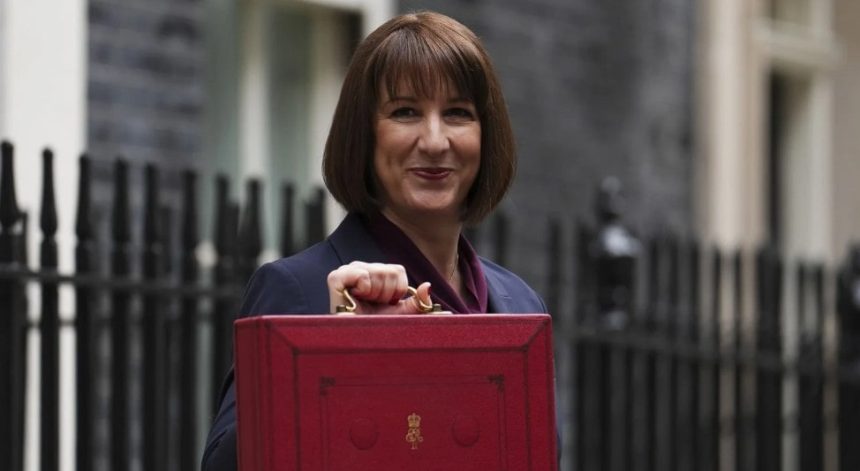Chancellor Rachel Reeves has come under intense pressure to abandon Labour’s firm pledge not to raise income tax, VAT or national insurance, as a looming £30bn shortfall threatens to derail the upcoming Budget.
In a stark warning, the Institute for Government (IfG) branded the tax promise “rash” and “unrealistic”, urging Ms Reeves to embrace bold tax reform rather than opting for what it calls “piecemeal” fixes.
The think tank says the government’s current approach risks complicating an already tangled tax system and could hinder long-term economic growth.
“With tax rises all but inevitable, she should reject the path of least resistance. Instead, now is the time to commit to tax reform and lay out an agenda on tax that fits with her broader growth objectives,” said Tom Pope, deputy economist at the IfG.
£30 Billion and Counting: The Harsh Fiscal Reality
Reeves faces a bleak economic landscape. Treasury insiders now believe the Office for Budget Responsibility (OBR) will downgrade its productivity forecasts, creating an immediate £20bn gap. Add to that:
- £5bn needed to fund the government’s U-turn on welfare reform earlier this year
- £5bn more to cover unexpectedly high interest payments
The total? A brutal £30bn budgetary hole, casting doubt over Labour’s capacity to deliver on key promises, especially scrapping the two-child benefit cap.
“We are protecting payslips for working people by keeping our promise to not raise the basic, higher, or additional rates of income tax, employee national insurance or VAT. That’s the Plan for Change,” said a Treasury spokesperson.
The Tax Trap: Stuck Between Pressure and Promises
Despite mounting calls to rethink their position, the government remains adamant. Housing Minister Matthew Pennycook told Times Radio: “We’re going to honour our commitments not to increase the rates of income tax, national insurance or VAT on the pay packets of working people.”
Treasury Chief Secretary James Murray was less committal, dodging questions on potential hikes by stating, “I’m not going to write a Budget here.”
That Budget, scheduled for 26 November, is now shaping up to be one of the most politically charged in recent memory.
“Eclectic Grab Bag” vs Systematic Reform
The IfG report, titled ‘2025 Budget and Beyond: How Rachel Reeves Can Approach Tax Reform to Help Drive Growth’, recommends a more strategic overhaul rather than relying on quick fixes or headline-friendly tweaks.
It criticises ad hoc revenue raisers as a sign of weak policymaking and warns that clinging to Labour’s tax freeze pledge could come at the cost of wider fiscal credibility.
Alternative Proposals Stir Debate
In response to the growing budget crisis, other think tanks have waded in. The Resolution Foundation proposed a bold switch:
- Cut national insurance by 2p
- Raise income tax by 2p
The aim? To generate £6bn while evening the playing field between workers, landlords and pensioners. They argue this would address embedded “unfairness” in the current tax structure.
However, the IfG has poured cold water on any plans to introduce a wealth tax, calling it “difficult” to implement without causing market disruption.
A Bleak Forecast from the OECD
Adding more pressure, the Organisation for Economic Co-operation and Development (OECD) this week warned that the UK’s tight fiscal stance, characterised by rising taxes and spending cuts, could severely dampen economic growth.
- Growth is projected to fall from 1.4% in 2025 to 1% in 2026
- UK inflation is expected to remain the highest in the G7
Combined with global economic tensions, including US tariff threats, the outlook for the British economy appears far from rosy.
With the Treasury’s financial outlook worsening by the day and a £30bn shortfall looming large, Rachel Reeves is being urged to abandon political caution and embrace radical reform.
But with Labour’s tax pledges etched into their manifesto, will she risk breaking promises to fix the books—or stick to the script and face economic fallout?
Reeves’ Reckoning: November Decision Looms
As speculation swirls, Labour’s ironclad tax stance may prove to be politically brave but economically brittle. With the 26 November Budget drawing closer, Reeves must make a defining choice: stick with her promises or risk a political storm by rewriting them.
One thing is clear: tax hikes are no longer a matter of “if”, but “how”. And for the Chancellor, time is running out to find the answer.






